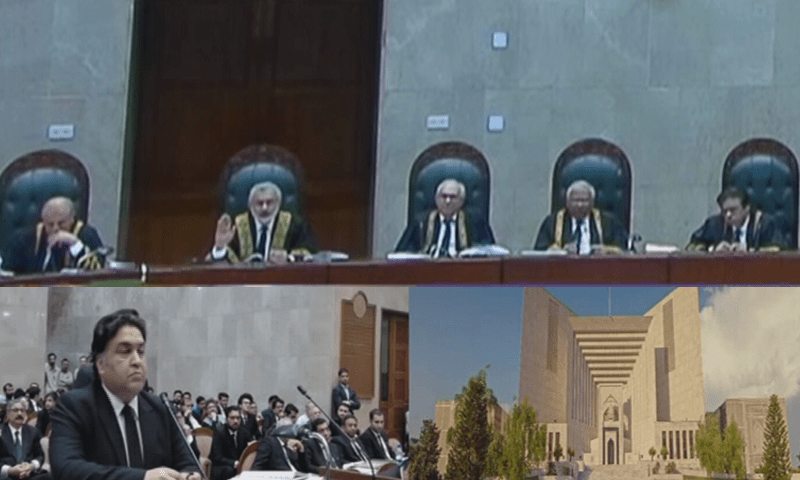The Supreme Court convened to address the contentious issue of reserved seats, with Justice Munib Akhtar bringing attention to critical legal discrepancies in the actions of the Election Commission of Pakistan (ECP). The dispute revolves around the classification of PTI-backed candidates as independents due to alleged errors committed by the ECP.
During the hearing, Justice Akhtar underscored a “cascading series of errors of law” by the ECP, which, according to him, compelled PTI-supported candidates to assume the status of independents. He emphasized that these candidates, despite their affiliation with PTI, were forced to contest as independents due to the ECP’s legal missteps.
The crux of the matter lies in the entitlement of these candidates to reserved seats, notwithstanding their association with the Sunni Ittehad Council (SIC) post-elections. The SIC, initially joined by PTI-backed independent candidates after a ruling deprived PTI of its electoral symbol, had its plea against the denial of reserved seats brought before the apex court.
In a previous verdict, the ECP ruled against the SIC’s claim to reserved seats, citing legal defects and violations. Consequently, the commission redistributed the seats among other parliamentary parties, leading to a significant shift in seat allocation. However, the PTI contested the verdict, deeming it unconstitutional.
Subsequent legal proceedings saw the Peshawar High Court dismissing an SIC plea challenging the ECP’s decision. However, a subsequent Supreme Court bench suspended the PHC verdict regarding the distribution of reserved seats, pending further deliberation.
The ongoing case has seen a full bench comprising eminent justices, except for Justice Musarrat Hilali, actively engaging in the legal arguments. Justice Mandokhail highlighted the electorate’s preference for PTI-nominated candidates, challenging the notion of their independent status. Justice Shah proposed a resolution suggesting the ECP provide a window for the affected candidates to reconsider their party affiliation.
In the latest development, a 13-member bench resumed hearing the case, with Advocate Faisal Siddiqi representing SIC’s female candidates. The proceedings were made accessible to the public through live broadcasting on the SC’s website and YouTube channel.
During the hearing, Siddiqi clarified that the SIC did not contest the elections as a party, thus refraining from filing a list of candidates for reserved seats. Justice Isa queried the distinction between a political party and a parliamentary party, hinting at its implications on the case’s outcome.
Justice Akhtar reiterated the importance of determining whether the SIC qualified as a political party, emphasizing the procedural aspects of candidacy declaration. He criticized the ECP’s actions, citing a series of legal errors that led to the candidates assuming independent status.
The discussion also delved into the intricacies of electoral symbols and the implications of court orders on party affiliation. Justice Mazhar emphasized the court’s previous ruling, which allowed the PTI to revisit the issue of reserved seats.
Justice Minallah emphasized the importance of upholding voters’ rights, highlighting the challenges faced by political parties. He underscored the need to address systemic issues within the electoral process, acknowledging the recurrent nature of such challenges.




